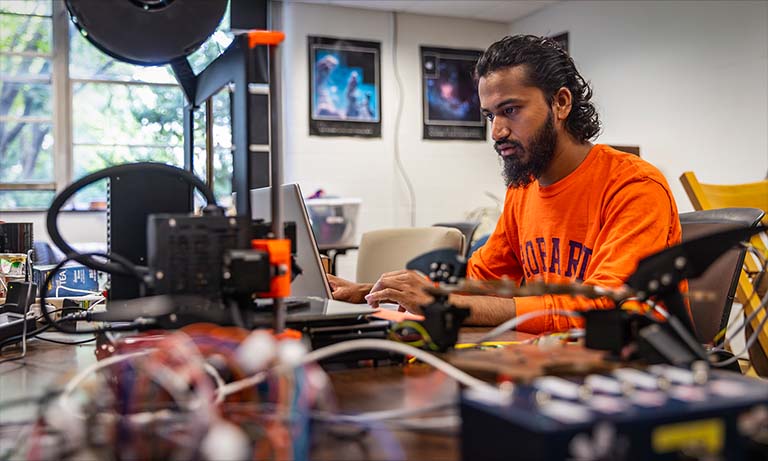
Engineering Joint Degree Program
For more details on joint degree programs in engineering, please consult Professor of Physics Donald Spector at spector@hws.edu or (315) 781-3594.MORE INFORMATION
A joint degree in engineering program is offered with the School of Engineering and Applied Science at Columbia University and The Thayer School of Engineering at Dartmouth College.
In general, students in the Columbia program spend three years at Hobart and William Smith and then two years at Columbia. At the end of five years, the student receives a B.A. or B.S. from HWS and a B.S. in engineering from Columbia.
In the Dartmouth program, a student usually spends the first two years at Hobart and William Smith, the third year at Dartmouth, the senior year at HWS, and a fifth and final year at Dartmouth. Upon completion, the student receives two degrees, one from Hobart and William Smith and one from Dartmouth.
Student SpotlightMarcus Lenz '24, Bachelor of Engineering '25
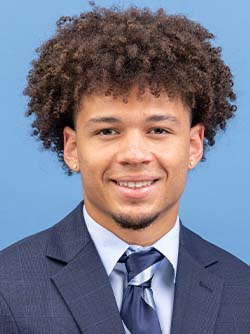
Major: Physics
"I chose to pursue the 3-2 program with HWS and Columbia to diversify my education with a liberal arts and engineering background while earning two degrees. The route has proved invaluable in terms of advancing my career goals and gaining professional experience. Some notable courses have been “Modern Physics” with Associate Professor of Physics Ileana Dumitriu, and “Classical Mechanics” with Associate Professor of Physics Steve Penn. The past two summers, I held engineering internships at top global companies, Honeywell and Eaton. The perspective of coming from a liberal arts and engineering background is a perfect combination for integrating into the professional world of engineering. I feel confident to apply what I've learned in any setting."
FacultyEngineering Program Coordinator
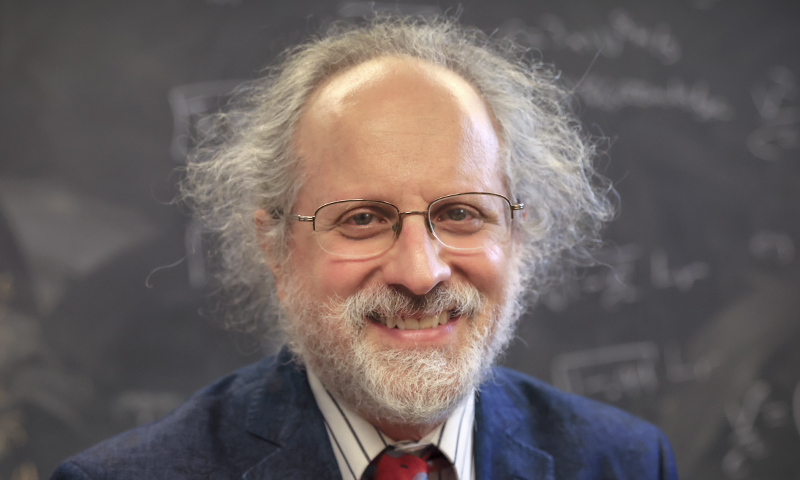
The Engineering Program Coordinator provides students the necessary details to successfully apply for and complete the Joint Engineering program, including assisting students in making sure they are on track with coursework and providing support along the way.
Donald Spector
Professor of Physics
(315) 781-3594
spector@hws.edu
Alum ImpactInvaluable Experiences
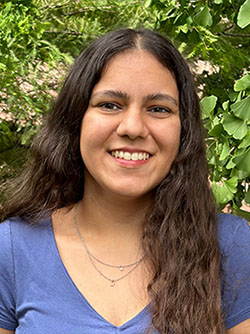
julia bellamy '22, Bachelor of engineering '23
Current Position: Ph.D. Candidate in Biomedical engineering, Cornell University
Major: Physics
Minor: Mathematics
“My time at Dartmouth and my current Ph.D. research at Cornell were successful due to the foundational knowledge I built at HWS. The “Electronics” course and my Honors thesis on detecting harmful algae blooms in the Finger Lakes with Associate Professor of Physics Ileana Dumitriu both prepared me for practical engineering applications and research work that I do now and will do in the future. Additionally, Dumitiru and Professor of Physics Donald Spector were great mentors who supported me through my time at HWS. The Joint-Degree program provides a great blend of a liberal arts education with the cutting-edge engineering research opportunities of an R1 institution.”
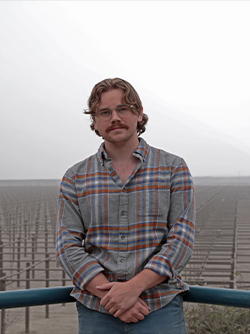
J. Monaco '20, Bachelor of engineering '21
Current Position: Ph.D. Student, Department of Aerospace at the University of Colorado Boulder
majors: Physics, Chemistry
Minor: Environmental Studies
“I came to HWS interested in science and my advisors enabled me to major and do research in both Physics and Chemistry. Eventually, I found myself more engaged when I combined skills and knowledge across disciplines to build solutions to technical problems. It was truly special to work at Dartmouth's machine shop and take engineering courses one semester and come back to the HWS Chemistry labs and Physics lectures the next. My research experience and professors at HWS inspired me to continue research after graduation, and I am now in my fourth year of my Ph.D. at the University of Colorado Boulder's Aerospace Department. My work involves using radar to study the environment of the upper atmosphere. This draws heavily on my backgrounds of engineering, physics, and chemistry. There could have been no better preparation than the Joint Engineering program.”
